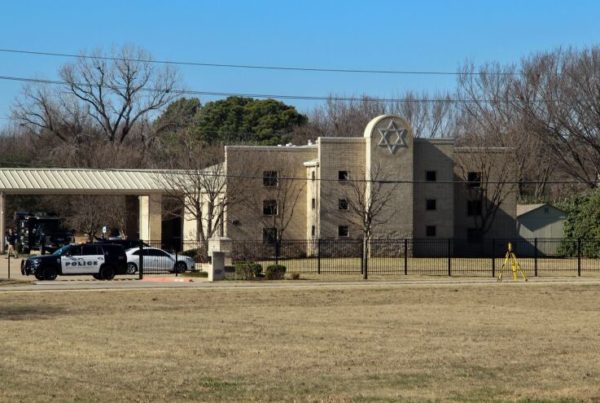This week a U.S. district Judge in Texas issued a temporary restraining order blocking workers from two unions who work at railroad company BNSF from striking. Fort Worth-based BNSF asked the court to block the strike, which was set to begin Feb. 1, saying it would cause the company “substantial, immediate, and irreparable harm” if it were to go forward.
The two unions, the Brotherhood of Locomotive Engineers and Trainmen and the Transportation Division of the International Association of Sheet Metal, Air, Rail, and Transportation Workers, represent 17,000 BNSF workers, and had threatened to strike over a new points-based attendance policy they argue penalizes workers for taking days off.
Richard Carlson is a professor at South Texas College of law, focusing on labor and employment law. He spoke with Texas Standard about the planned strike, why the judge decided to temporarily put a stop to it and how recent supply-chain issues likely played a role. Listen to the interview with Carlson in the audio player above or read the transcript below to learn more.
This interview has been edited lightly for clarity.
Texas Standard: Why were the two unions seeking to strike in the first place?
Richard Carlson: Well, I suspect that they’re upset about the new attendance plan. It’s hard to know exactly what their objections are. It might simply be that they’re upset that the company did not consult with them before making these changes.
BNSF said this strike would cause financial harm. But isn’t that the whole point of the strike, to bring pressure on a company to meet demands?
It is, and that’s why injunctions of this sort are not favored. But there are some special situations in which a federal court can issue a injunction against a strike, and one would be that there’s already a collective-bargaining agreement between the parties, and the dispute simply involves the interpretation and application of the terms of that agreement. The union cannot strike under these circumstances; it has to take its objection to arbitration.
What did District Court Judge Mark Pittman say in his decision? Did he point to that, or was there some other basis for his decision?
That’s the primary basis for it. You know, a temporary injunction is an emergency action, and a judge issues a temporary injunction when things are moving very fast, has the danger of a lot of harm and it’s not yet completely clear who’s in the right and who’s in the wrong.
I was curious about whether there might be some kind of public policy implication here, given the recent supply-chain disruptions.
Well, there there is. To this extent, when a judge is making an emergency decision like this to freeze the status quo, prohibit a strike, it can all be very complicated. Who’s right and who’s wrong? So when it comes to injunctions, judges are also allowed to consider the public interest – in this case, for example, the supply chain.
What’s stopping the workers from just striking anyway? Is there a possibility that they could just walk out?
It is possible, and this happens sometimes. But when employees violate a court order or violate a no-strike clause of their contracts, they’re subject to discharge. The employer can discharge them for that. Now, it’s difficult for employers to discharge important employees en masse. If a lot of people fail to show up, it will be difficult for the employer to deal with this. But they’re also potentially violating a court order. And if there’s any evidence that people conspired to arrange a work stoppage like this, they’ll be in contempt of court.
What’s next for the workers as you see it? What options do they have left?
The big option they have is to go to arbitration. And I suspect that they’re upset, possibly because they feel the company should have consulted with them to begin with. But they still have the option of going to arbitration, and I bet they will. I think they probably will. And their argument will be that the changes that the company made were in violation of managerial discretion under the collective-bargaining agreement.















